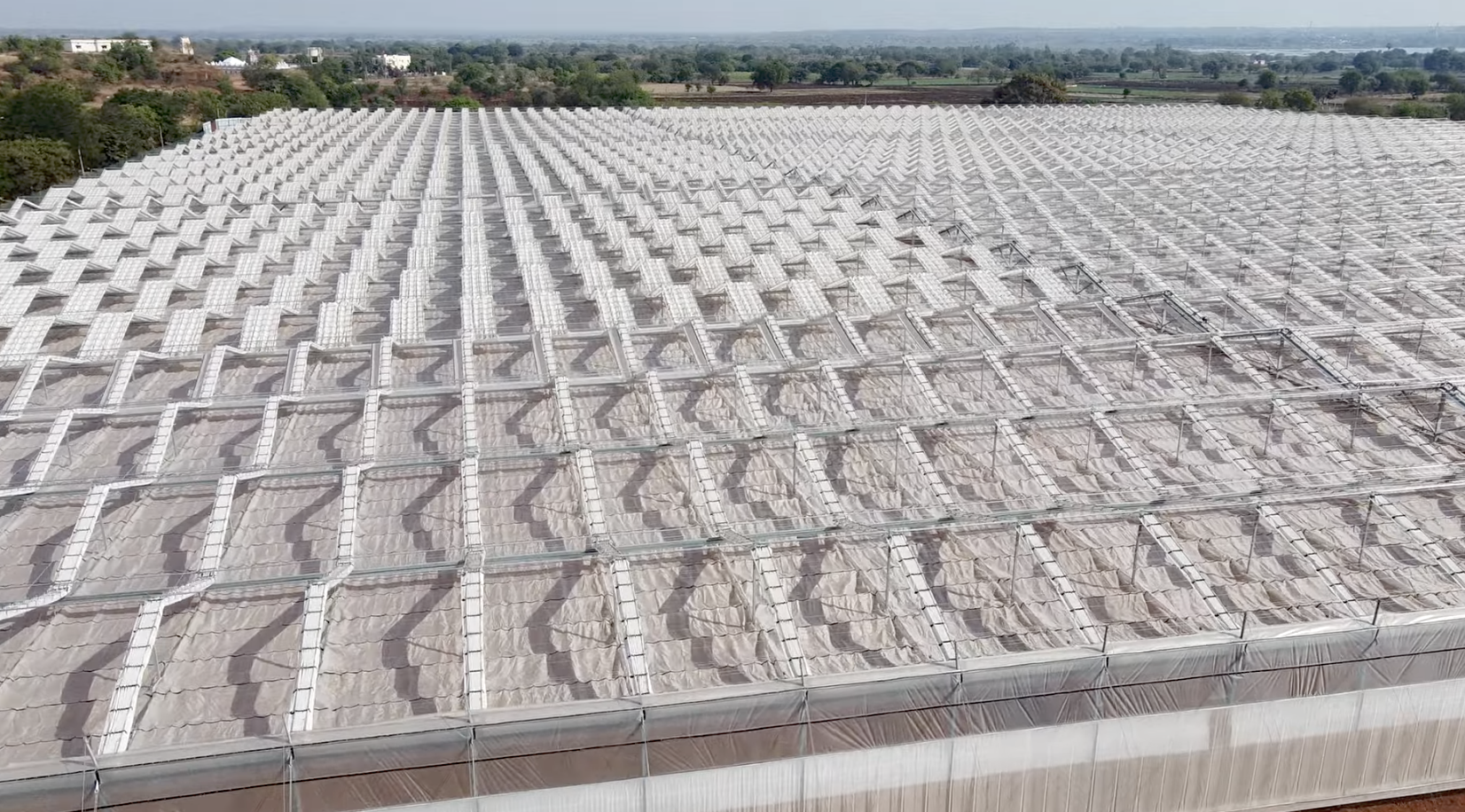Extend the industrial chain and increase added value-new changes in Chongqing’s “Vegetable Basket”
Xinhua News Agency reporters Li Xiaoting and Tao Ye
During the Spring Festival, fresh white radish has matured in the Guilin Vegetable Base in Tongnan District, Chongqing.Qianmo Road divides 10,000 acres of land, and three-wheeled trucks run in between.On a ridge, several villagers, under the command of Xi Zhengxue, a three-wheeled truck driver, loaded piles of white radish they had picked into the car.
“It’s the carrot harvest season. I got a job in a cooperative to drive and ship goods. I can earn 500 yuan a day.”When it comes to salary, Xi Zhengxue said with a shy smile.Not only that, Xi Zhengxue himself also packed up more than 10 acres of land to grow vegetables such as peppers and radishes.
Chen Qiwu, the stationmaster of the Vegetable Industry Development Station of the Tongnan District Agricultural and Rural Committee, said that the soil in Tongnan is sandy soil, which is alluvial from the Fujiang River. The soil is fertile and loose, and the artificial canal forms a gap with the Fujiang River, and the irrigation conditions are excellent.Under such innate advantages, Tongnan radish has excellent quality and is a national geographic indication product of agricultural products.But many years ago, such advantages were not used.
“In the past, farmers scattered some grain and low-cost vegetables, neither forming a scale nor uniform quality, and farming could not make money at all.“Liu Yaoya, the head of Xiaozhou Vegetable Professional Cooperative in Tongnan District, Chongqing, told reporters, “Now all villages have formed cooperatives to grow specialty agricultural products, and the technical personnel of the Agricultural Commission are unified to guide, and the quality of vegetables is getting better and better.””
In the field not far away, the second season of radishes has been sown, and rows of white films are like putting winter clothes on the earth.The slender and straight radishes were transported from the ground to the processing base, and the automated cleaning and packaging machines roared, “spitting out” bags of neatly packed white radishes.Here, more than 90% of radishes are sold to Guangdong, Hainan, Beijing, Hebei and other places.
Liu Shiping, chairman of the Dadi Shenghui Vegetable Planting Professional Cooperative in Tongnan District, Chongqing, returned to his hometown in 2012 to organize a cooperative to gather thousands of acres of land in the village group for unified varieties, unified maintenance, unified packaging, and unified sales.The processing base of Dadi Shenghui Cooperative has cleaning equipment, a freezer and a parking lot to help local farmers rough process agricultural products and charge a small processing fee.More than 10 large trucks travel to and from the base every day, transporting dozens of tons of bagged radishes.“The sales profits of cooperatives are returned to farmers. Taking radishes as an example, the income from radishes per acre in a season is at least 4,000 yuan.”Liu Shiping said.
Today, the Guilin Vegetable Base in Tongnan District has a radish planting area of more than 30,000 mu, and more than 10,000 mu of cabbage has also been planted.Every May, the radish land is changed to grow glutinous corn, the cabbage land is changed to grow bitter gourds, peppers and other vegetables, and the cultivated land is fully utilized.
Walking into Chongqing Puzhen Agricultural Development Co., Ltd., located in Tongnan District, on the assembly line of the company’s 6,000-square-meter constant temperature and low temperature processing workshop, batches of organic vegetables from Tongnan are screened, packaged, and quality inspected, and then distributed to high-end fresh supermarkets throughout the cold chain.
“Through deep processing and organic quality assurance, the price of organic vegetables like this is much higher than that of ordinary vegetables.”Chen Qiwu said.Not only that, local governments and enterprises are also exploring more means of deep processing of vegetables to continuously extend the industrial chain and increase product added value.
Next to the vegetable dispensing assembly line of Park Jin Agricultural Company, some huge stainless steel tanks attracted the attention of reporters.Chen Lijun, the relevant person in charge of Puzhen Agricultural Company, introduced that this is an enzyme production line. Here, organic vegetables such as radish, cabbage, chrysanthemum, etc. are scientifically fermented, processed, and “transformed” into an enzyme drink loved by young people.Since 2019, Puzhen Agricultural Company has begun to cooperate with foreign companies to carry out enzyme product research and development. Now 80% of the company’s enzyme products are exported abroad.
More changes are taking place.As Chongqing’s “vegetable basket”, Tongnan District has accelerated the construction of a high-quality raw material base and the development of processing subjects in recent years, promoted scientific research and innovation and market brand cultivation, and laid out seven characteristic food processing industries such as grain and oil, lemon, and health food.Tongnan High-tech Zone was included in the master Plan of China (Chongqing) International Agricultural Product Processing Industrial Park.At present, 37 projects have been signed, which has led to the employment of more than 15,000 people.
A source: http://f.china.com.cn










